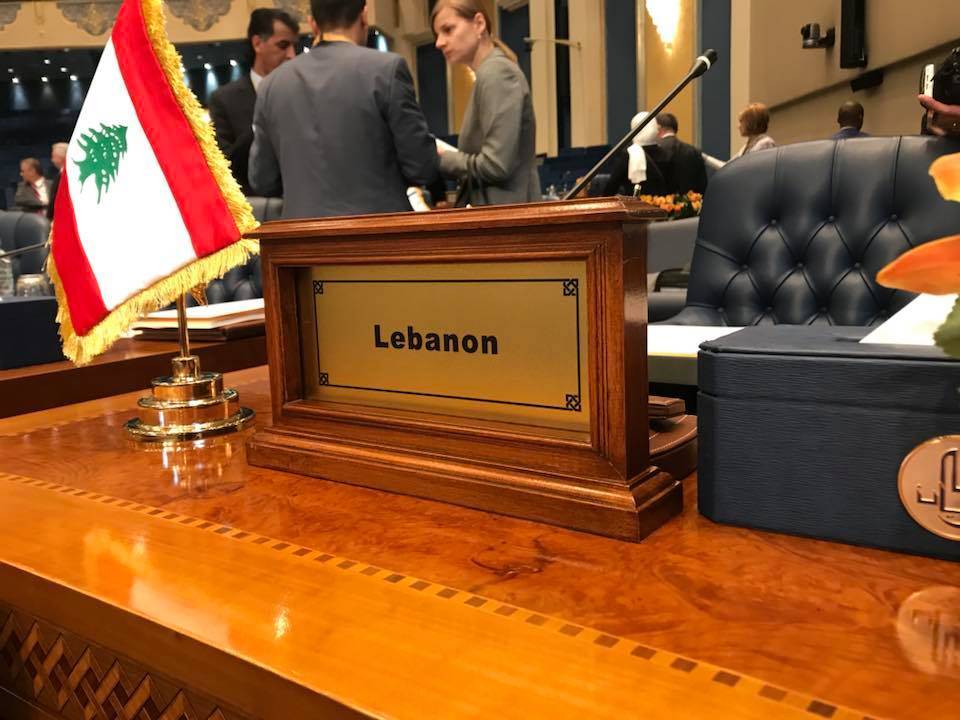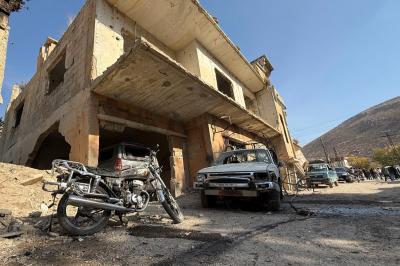Lebanon has revived its diplomatic activity on the premise that it is the best—if not the only—path to pressuring Israel into withdrawing from positions it has reoccupied in the south, halting air raids on Lebanese territory, and opening channels with Syria to resolve long-standing disputes. These range from border control and regulating bilateral ties to securing the return of Syrian refugees and settling judicial and security issues related to the kidnapped, detained, and disappeared. In short, Lebanese diplomacy is working to manage the crisis and avert a full-scale war.
Limited Military Pressure as a Diplomatic Lever
Diplomatic efforts cannot be separated from realities on the ground. By refusing to surrender its weapons, Hezbollah applies calculated pressure that rises and falls in step with the war in Gaza and ongoing Israeli violations. While these pressures are dangerous, they create new conditions for Lebanon’s diplomacy. Instead of appearing as mere complaints, Lebanon’s appeals now come amid a volatile situation that no one wishes to see explode. The implicit message from Beirut: “We want to avoid war, but it is Israel’s occupation and daily aggression that risk igniting it. The solution lies in your hands—help extinguish the fuse instead of waiting for the blast.”
International Legitimacy and Resolution 1701 as a Cornerstone
At every international forum, Lebanese diplomats stress one point: Lebanon is fully committed to UN Security Council Resolution 1701. They remind partners that it affirms Lebanon’s sovereignty and territorial integrity, calls for border disputes to be resolved through the UN, and requires Israel’s withdrawal behind the UN-demarcated Blue Line established after the 2006 war. Any Israeli breach—whether crossing that line or bombing civilian areas—amounts to a blatant violation of the very resolution Western capitals claim to uphold. This narrative places Israel’s allies, particularly the United States and France, in an awkward position, exposing the contradiction between their insistence that Lebanon and Hezbollah abide by international law while overlooking Israel’s persistent violations of it.
Navigating Divisions in the International Community
Lebanon’s diplomats are well aware that the global response to the crisis is far from unified. Washington stands firmly behind Israel, while Europe—especially France, with its historic ties to Beirut—shows deeper concern about the conflict spreading. Meanwhile, China and Russia continue to criticize Israeli and U.S. policies. Lebanon tailors its message accordingly: to Washington, it emphasizes preventing escalation and protecting America’s own interest in regional stability; to Europe, it stresses international legitimacy, political solutions, and the refugee crisis that could explode into Europe’s backyard if war breaks out. This calibrated messaging aims to break the illusion of a unified international front and to forge temporary alliances in support of Lebanese demands.
Linking Lebanon’s Stability to Regional Peace
Beirut positions itself as a stakeholder in stability, not destruction. Diplomats consistently connect their calls to stop Israeli border violations with broader regional solutions, underlining that a just resolution of the Palestinian question is indispensable. They also highlight Lebanon’s fragile sectarian fabric and unprecedented economic and humanitarian crises, describing the country as a “ticking time bomb.” A war would not only devastate Lebanon but could also spark a regional conflagration and trigger another massive wave of refugees threatening Europe’s stability. This warning is directed squarely at Western powers, which view Lebanon as a microcosm of the challenges of managing diversity—and are determined not to repeat the Syrian scenario.
Obstacles to Diplomatic Efforts
Despite its urgency, Lebanon’s diplomatic drive faces formidable obstacles. Chief among them is Washington’s unshakable bias toward Israel, even though the U.S. remains the main—if not the only—power capable of swaying Israeli policy. A second hurdle lies within Lebanon itself: while the government generally speaks with one voice, cracks appeared when Shiite ministers opposed the army’s plan to enforce state sovereignty and monopolize arms. Still, the governing coalition held together. A third obstacle is the world’s focus elsewhere—primarily Gaza, where Israel is waging what many describe as a war of extermination. The recent Israeli strike on Qatar only added another diversion, drawing international attention further away from Lebanon.
Please post your comments on:
comment@alsafanews.com
 Politics
Politics













